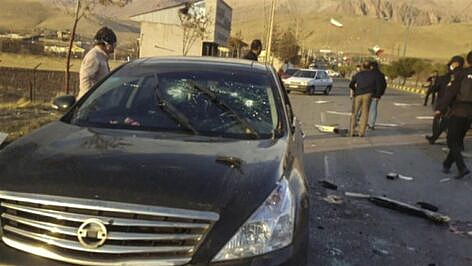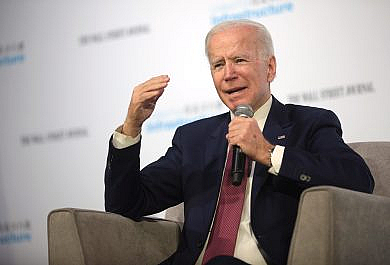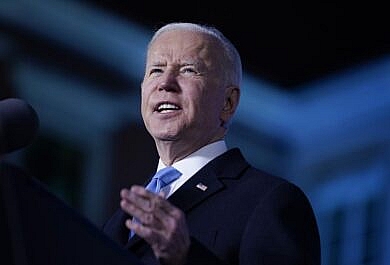The death of a top Iranian nuclear scientist garnered fresh condemnations from Iran and Democratic politicians. As the Trump Administration winds down, will its successful yet unconventional approach to Middle East politics continue in the Biden Administration?
Summary
The purported head of Iran’s nuclear weapons program was killed in Tehran yesterday, sparking condemnation and vows of reprisal from the Iranian government.
- The scientist’s passing comes as the transition between the Trump and incoming Biden administrations formally begins, and experts say this development will complicate Biden’s efforts to formally re-engage Iran, which was considered difficult even before Fakhrizadeh’s death.
- The Obama Administration secured a multi-national agreement (called the JCPOA) with Iran and other leading nations for sanctions relief in exchange for an Iranian pledge to delay their nuclear research program.
- President Trump later rescinded the United States’ participation in the agreement.
- One expert says Fakhrizadeh’s death shows the deception of Iran’s intentions from the start of the compact, and another warning against the foreign policy elite’s conventional wisdom that “President Trump’s real strategic successes in the Middle East region as a whole” can be erased and reset.
- In addition to pulling the United States out of the JCPOA, the Trump Administration killed a top Iranian general after the murder of American contractors at the general’s direction, and has engaged several Middle East nations to broker peaceful formal relations with their former enemy Israel.
- Friday’s killing of scientist Fakhrizadeh drew condemnation from Obama-era CIA Director John Brennan, who called it “a criminal act” that “risked retaliation.” He similarly criticized the death of Soleimani.
- The news of Fakhrizadeh’s death comes at a time when Israel is reportedly preparing Israeli Defense Forces for “a very sensitive period”, referring to the transition from Trump to Biden.
- Israeli and Saudi government leaders also recently met to discuss the normalization of relations, which apparently came to no agreement due the impending change in presidential administrations.
- Reuters says the Israel-Saudi meeting, regardless of its conclusions, sends a clear signal to President-elect Biden that former mortal enemies are now willing to work together to counter the threat of Iran, who “fear Biden will adopt policies on Iran similar to [Obama].”
![]()
- According to a former UK diplomat, Biden’s cabinet picks suggest a willingness to entertain more American intervention in the Middle East, particularly in persistant hotspots like Syria, a mindset the diplomat says renders a reset with Iran “dead in the water.”
- In its reporting of Fakhrizadeh’s death, the New York Times framed the event as part of a string of developments, including pulling the US out of the JCPOA, as President Trump “isolating” the United States.
- Left-of-center publication The Guardian leaned in on criticism of Israel, saying it is using the Trump-Biden interregnum as an opportunity to head off the possibility of a U.S.-Iran rapprochement.
![]()
- The Wall Street Journal Editorial Board discusses the relationship between the presidential transition, Biden’s history with Iran as Vice President, and the ease with which Iran was able to ramp up their nuclear capabilities after the US withdrew from the JCPOA. The board argues the evidence proves Biden should not re-engage with Iran.
- Conservative commentator John Podhoretz also warns Biden to continue the new status quo, saying “A Middle East in which Israel and Arab states find they can live together…is an international blessing.”
- The Jerusalem Post also argues against a new Middle East initiative for Biden, laying out what it considers decades of missteps my American presidents, but calling Trump’s successful engagement in the region “a ray of light” for what it calls “a catastrophic presidency.”
© Dallas Gerber, 2020






